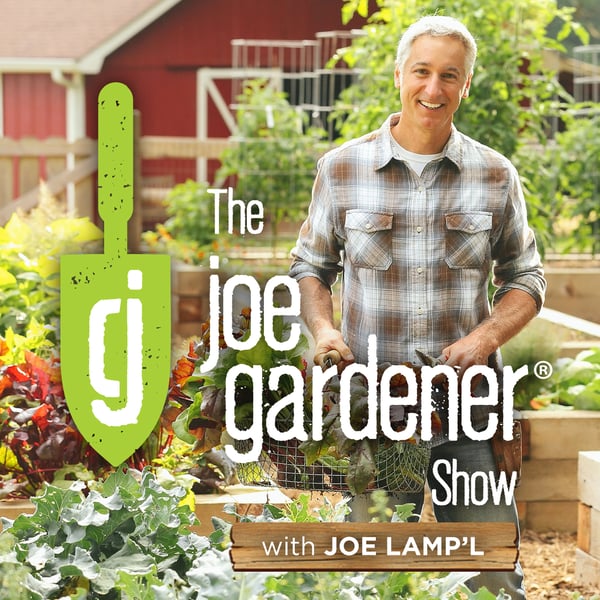373-The Land Ethic: Aldo Leopold’s Conservation Philosophy
The joe gardener Show - Organic Gardening - Vegetable Gardening - Expert Garden Advice From Joe Lamp'l
Joe Lamp'l
4.6 • 1.7K Ratings
🗓️ 11 July 2024
⏱️ 61 minutes
🧾️ Download transcript
Summary
Aldo Leopold is considered to be one of the most consequential conservationists of the 20th century. In his posthumously published book “A Sand County Almanac,” he put forward the “land ethic” — the idea that the fates of humans and land are intertwined. To talk about Leopold’s influence on the conservation movement, joining me on the podcast this week is Aldo Leopold Foundation senior fellow Dr. Curt Meine.
Podcast Links for Show notes
Download my free eBook 5 Steps to Your Best Garden Ever - the 5 most important steps anyone can do to have a thriving garden or landscape. It’s what I still do today, without exception to get incredible results, even in the most challenging conditions.
Subscribe to the joegardener® email list to receive weekly updates about new podcast episodes, seasonal gardening tips, and online gardening course announcements.
Check out The joegardener® Online Gardening Academy for our growing library of organic gardening courses.
Follow joegardener® on Instagram, Facebook, Pinterest, and Twitter, and subscribe to The joegardenerTV YouTube channel.
Transcript
Click on a timestamp to play from that location
| 0:00.0 | Hi everybody this is Joe Lample the Joe behind Joe Gardner and welcome to the |
| 0:04.6 | Joe Gardner show today's conversation is about a man who lived just 61 years |
| 0:09.4 | but in that short life his diverse and tireless work centered around wildlife ecology |
| 0:15.7 | led him to be considered the most influential conservationist of the 20th century. |
| 0:21.8 | If you don't know about Aldo Leopold, you have likely at least heard his name |
| 0:25.8 | a time or two. So allow me to offer a brief introduction here before we hear from one who has been studying Aldo Leopold's life for nearly four decades. |
| 0:36.0 | Aldo Leopold was born in 1887 and he died in 1948, less than a year before his book, The Sand County Almanac, which he is best known for, was |
| 0:46.3 | published. |
| 0:47.3 | Since then, it's been translated into 14 languages and has sold more than 2 million copies. Beyond his notoriety as a gifted writer, he was a |
| 0:56.7 | philosopher, naturalist, scientist, scholar, ecologist, forester, Conservationist, and Environmentalist, and he was also a professor at the |
| 1:06.2 | University of Wisconsin. |
| 1:08.2 | He was considered the father of wildlife ecology and a founder of the science of wildlife management. |
| 1:14.3 | He was influential in the development of modern environmental ethics and wilderness conservation |
| 1:19.4 | and his ethics of nature and wildlife preservation had a profound impact on the environmental |
| 1:24.6 | movement in which he emphasized biodiversity and ecology. |
| 1:29.0 | What a perfect combination. |
| 1:30.7 | There are so many things to love about Aldo Leopold, which is why he's known and loved by millions of people around the world and count me as one of them. |
| 1:39.0 | Perhaps all of these endeavors during Leopold's short life help explain why one may need nearly 40 years to study his life, as our guest today has dedicated much of his life to doing. |
| 1:50.0 | Today I'm honored to speak with Dr. Kurt Meiney, a conservation biologist, writer, historian, |
| 1:56.0 | senior fellow with the Aldo Leopold Foundation, and author of the biography, Aldo Leopold, |
| 2:02.1 | his life and work. |
| 2:03.4 | And as we begin my discussion with Dr. Money, |
... |
Transcript will be available on the free plan in -264 days. Upgrade to see the full transcript now.
Disclaimer: The podcast and artwork embedded on this page are from Joe Lamp'l, and are the property of its owner and not affiliated with or endorsed by Tapesearch.
Generated transcripts are the property of Joe Lamp'l and are distributed freely under the Fair Use doctrine. Transcripts generated by Tapesearch are not guaranteed to be accurate.
Copyright © Tapesearch 2025.

